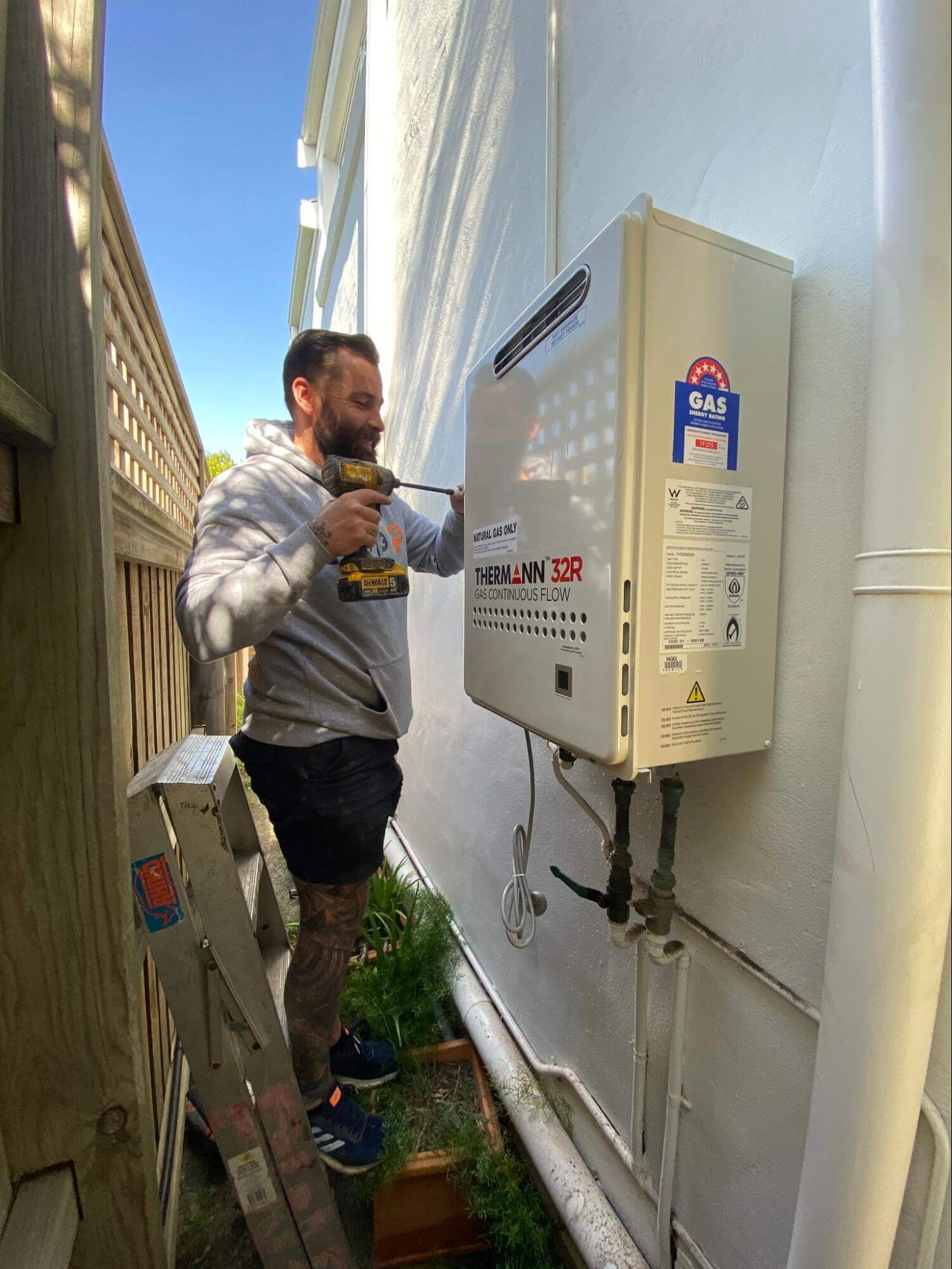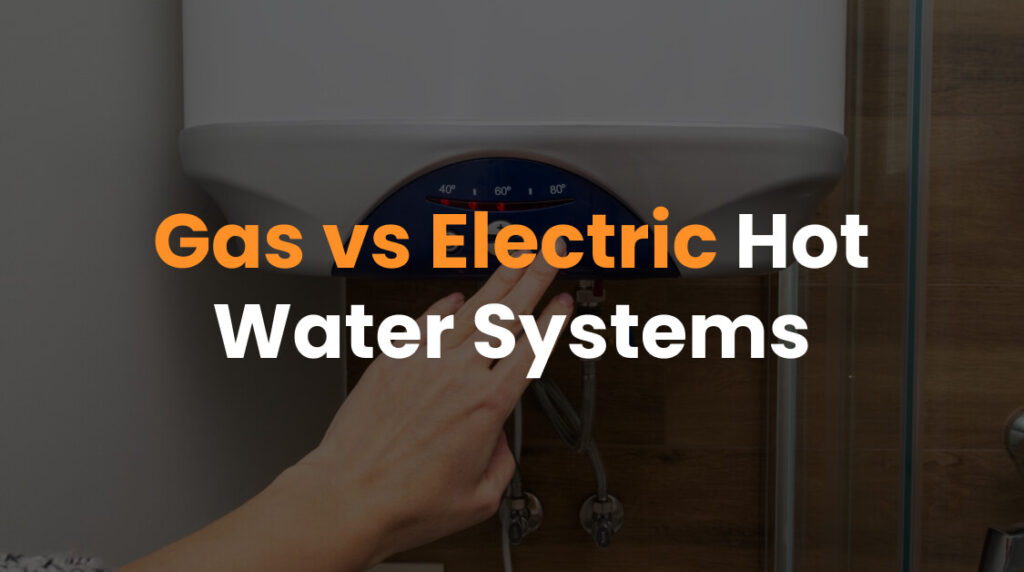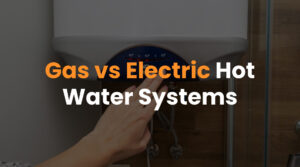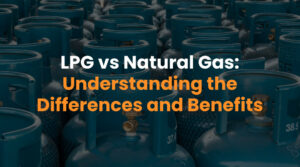When it comes to heating your home’s water, the choice between gas and electric hot water systems is a significant one. Each type has its advantages and drawbacks, from the cost of operation to efficiency and environmental impact. This guide by Plumbwell Plumbing Services will delve into the differences between gas hot water heaters and electric water heaters, helping you decide which system best suits your needs.
Understanding Electric Hot Water Systems
Electric hot water systems heat water using an electric element. These systems can be either instantaneous, providing hot water on demand, or utilise a storage tank to keep a supply of hot water ready for use. Electric models are often considered easier to install and maintain than their gas counterparts, making them a popular choice for many households.
Electric vs Gas Hot Water Systems: A Detailed Comparison
The decision between electric and gas hot water systems encompasses a variety of considerations, each with its own implications for cost, efficiency, and environmental impact.
Comparing Running Costs: Gas vs Electric Hot Water Systems
The operational cost is a pivotal factor in choosing between gas and electric hot water systems. Here’s how they stack up:
- Gas Water Heater: Generally seen as more cost-effective in terms of ongoing expenses, gas systems benefit from the lower cost of natural gas compared to electricity. This is particularly true for gas continuous flow systems, which ensure hot water is readily available.
- Electric System: Despite potentially higher operating costs due to electricity prices, electric instantaneous water heaters can offer savings by heating water only as needed, making them ideal for smaller households or those with lower hot water demand.
Electric vs Gas Hot Water: Efficiency and Environmental Impact
Efficiency and environmental considerations play a significant role in the choice between gas and electric hot water systems:
- Gas System: The efficiency of gas water heaters typically surpasses that of electric ones due to the inherent properties of natural gas. However, the environmental impact of gas heating can be a concern, with carbon emissions higher than those of electric systems powered by renewable sources.
- Electric Models: Electric heaters can be greener, particularly when powered by renewable energy. Solar hot water systems exemplify this, though they come with higher initial costs. Their efficiency and reduced environmental impact make them an appealing choice for eco-conscious homeowners.
Cost Comparison: Electric and Gas Hot Water Systems
When weighing the costs of gas versus electric hot water systems, several factors come into play:
- Installation and Maintenance: Gas systems might entail higher installation costs due to the complexities of gas connections and venting. Electric heaters, by contrast, usually cost less upfront and demand less maintenance, potentially leading to savings.
- Overall Costs: Operating costs for gas water heaters can be lower, but electric heaters benefit from simpler setups and potentially cheaper maintenance. Ultimately, the decision may hinge on local utility pricing, availability of natural gas, and personal environmental values
Pros and Cons of Hot Water Systems

Choosing the right hot water system for your home involves weighing the benefits and drawbacks of the various types available, particularly when comparing gas and electric models. Both systems have evolved significantly, with modern advancements designed to improve efficiency, reduce costs, and minimise environmental impact.
Pros and Cons of Electric Hot Water Systems
Pros:
- Availability: Electric hot water systems, including electric storage and electric instant hot water systems, are widely available and can be used in any home with an electricity supply.
- Installation: Installing an electric system is generally straightforward and usually less expensive upfront compared to gas systems, especially if your home doesn’t already require a gas line.
- Efficiency: Modern electric systems, particularly electric heat pump systems, are highly efficient, using less energy to heat water and producing less greenhouse gas emissions compared to traditional electric storage water heaters.
- Safety: Electric hot water systems don’t burn fuel to heat water, which eliminates the risk of gas leaks, making them safer in terms of potential for carbon monoxide exposure.
Cons:
- Running Costs: Despite improvements in efficiency, electric hot water heaters can be more expensive to operate than gas, mainly because electricity costs more than natural gas in many areas.
- Environmental Impact: While electric heat pump systems are an exception, most electric hot water systems rely on the grid, which may still use fossil fuels, thus contributing to greenhouse gas emissions.
Pros and Cons of Gas Hot Water Systems
Pros:
- Cost-Effectiveness: Using gas to heat water is generally cheaper than using electricity, particularly if you’re using natural gas. Instant gas hot water systems and continuous flow hot water systems can significantly reduce your energy bills by only heating water as needed.
- Speed: Gas systems, including instantaneous gas and continuous flow models, heat water faster than electric storage tank systems, offering instant hot water and efficient recovery rates.
- Less Dependence on Electricity: For homes located in areas prone to power outages, gas hot water systems offer the advantage of continued operation, ensuring hot water availability even without electricity.
- Environmental Efficiency: When comparing to electric systems (excluding heat pumps), gas water heaters are often more efficient, producing less greenhouse gas emissions, especially if the gas is sourced from biogas or processed from waste.
Cons:
- Installation Complexity and Cost: Installing a new gas hot water system, especially if switching from electric to gas, can be more complex and costly. It requires a gas line and proper venting for gas appliances.
- Maintenance: Gas hot water systems might require more regular maintenance than electric models to ensure the gas burner and other components are functioning safely and efficiently.
- Environmental Considerations: Despite being more efficient than electric, using gas still involves burning fossil fuels, contributing to carbon dioxide emissions unless supplemented by renewable sources like solar water heating.
Choosing and Maintaining Your Hot Water System

How to Choose the Right Hot Water System: Electric or Gas
Deciding between an electric or gas hot water system depends on several factors, including your household’s hot water usage, access to natural gas or LPG, and initial vs. ongoing cost considerations. Gas hot water systems, such as gas instant hot water and continuous flow models, offer rapid heating and are generally cheaper to run if natural gas is available, making them ideal for larger families or higher usage needs. Electric hot water systems, including efficient electric storage and instant models, provide a versatile option with easier installation, especially where gas supply is limited or non-existent.
Maintenance and Longevity of Hot Water Systems
Maintaining your hot water system, whether gas or electric, is crucial to ensure efficiency, safety, and longevity. Regular checks and servicing by a qualified professional can prevent common issues like sediment build-up in storage tanks or inefficiencies in the heating element or gas burner. Timely maintenance not only extends the life of your hot water unit but also ensures it runs at optimal efficiency, providing reliable hot water service with minimal energy waste.
Conclusion: Making an Informed Choice Between Electric and Gas Hot Water
Choosing the best hot water system for your home—electric or gas—requires a balance between initial installation costs, ongoing energy expenses, and hot water needs. Gas water heaters often offer lower running costs and faster heating, making them cost-effective for larger households with access to a gas supply. Electric systems, on the other hand, provide simplicity and flexibility, especially in areas without natural gas service, ensuring you have hot water when you need it, regardless of the energy source.








